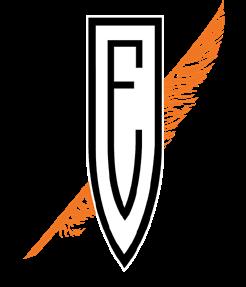

English
Students read and scrutinize texts, write the expository essay with clarity, coherence, and power, and engage in round-table Harkness discussions. Correct usage, copy-editing skills, and writing principles are reinforced in all courses. Electives allow students to explore a rich variety of genres, writing styles, and stories that explore identity, humanity, and essential questions transcending time and place.
Curriculum Guide
Success is achieved by mastering a set of sequential, math literacy skills beginning with Algebra I. The Core Skills are the focus of every course alongside appropriate technology in problem-solving situations. As students enter and progress at different levels, placement and subsequent progression into appropriate courses are critical and monitored by the department. Students are required to demonstrate proficiency through Algebra II while also pursuing further courses per college entry requirements. In addition, students in Grade 9 take Computational Thinking, a one-semester course for developing skills in algorithmic thinking, the fundamentals of coding, an introduction to information technology systems, data analysis and artificial intelligence, and a consideration of ethics in computing.
OF COURSES
History & Social Studies
History courses encourage students to ask questions, explore answers, and formulate theories in an environment promoting open-mindedness and diversity of thought. Students become accomplished in deductive and inductive thought, research, writing, and reading. Electives allow students to become specialists in concentrated areas and further develop research and analytical thinking skills.
Science
Science examines the three major disciplines within a two-year program in Grades 9-10, culminating with projectbased teaching modules in Integrated Science that emphasize connections among biology, chemistry, and physics. Essential concepts are expanded upon while students become proficient in scientific literacy. Electives allow students to pursue various interests and build upon their abilities. Students may also choose to participate on the Ensworth Robotics Team, a yearlong extracurricular program, with exciting engineering challenges presented in the form of a competitive game. Students build innovative robots and compete year-round in the VEX Robotics Competition.

Ensworth Mission Statement
Ensworth is a kindergarten through twelfth grade, coeducational independent school. The School promotes academic excellence and inspires students to be intellectually curious, to use their talents to the fullest, to be people of integrity, and to be contributors to society.
World Language
The primary goal of the curriculum is the acquisition of essential communication skills in a target language. This is achieved through a sequentially structured presentation of grammar taught in conjunction with multiple opportunities for practice in the areas of aural comprehension, speaking, reading, and writing. A secondary goal is the cultivation of an appreciation for and understanding of other cultures, traditions, and languages. The World Languages Department offers courses in Chinese, French, Latin and Spanish beginning at the introductory level and continuing through Advanced Placement.
Visual and Performing Arts
Arts courses are designed to challenge and encourage students at all levels of experience in both performing and visual arts. Courses consist of academic electives in dance, music, theater, and visual arts, and explore the theoretical, analytical, critical, or historical studies in the arts and the development of specific skills within each respective discipline.
Performing arts ensembles are year-long, extracurricular learning experiences with a focus on skill development in which students perform together as a group. Ensembles perform several times during the year and are intended for students who are willing to represent Ensworth in a variety of public settings. Auditions are required for all ensembles and are open to all students regardless of prior experience.
Seminar
Seminar, a required semester course in Grade 10, is a unique component of the academic curriculum as it prepares students for life beyond the classroom while teaching the Core Skills. Seminar introduces Harkness methodology through pertinent developmental and social issues. The hope is to equip adolescents with greater self-awareness, interpersonal skills, and ample resources for optimal mental, emotional, and physical health through the exploration of topics including but not limited to social adjustment, community, leadership, relationships, peer pressure, social media, wellness, and diversity.
Fitness
All students take a Fitness course each semester that meets 3-4 times per week for 45 minutes during the school day. This course consists of a fitness program tailored to the individual fitness needs of each student. Students are challenged to improve flexibility, strength endurance, cardiovascular endurance, and overall body composition through an individualized fitness program. Each student’s program involves elements of weight training, aerobic training, plyometrics, and agility, and is designed and overseen by a professional fitness instructor with the proper background and expertise.
Service Learning
GRADES 9-11: The Service Learning Program includes up to 30 minutes/week to discuss and research topics and plan projects as students conduct service work of up to 30 hours over the course of each school year in the local community.
GRADE 12: Students design their own service projects by researching social issues, developing contacts with persons involved in the local community, and completing their service learning via a presentation at our annual Social Issues Conference in April. Students may choose to go beyond this requirement toward earning the distinction of Service Scholar, by completing a research essay and reflection essay, additional service hours, and a presentation.
Capstone Scholars
The Capstone Scholars Program offers students in Grade 12 an opportunity to engage in an extensive exploration of an academic passion that lies above and beyond courses normally offered at the High School. Capstone candidates should demonstrate excellence in the areas of their proposed projects, a general proficiency across all other areas, and a history of responsibility with recent instructors. To participate in the Capstone Program, a Grade 11 student investigates, proposes, and gains approval from the HS Curriculum Committee for a specific project to be completed in Grade 12. The Capstone Program includes formal presentations by all participants at a designated event in May.
